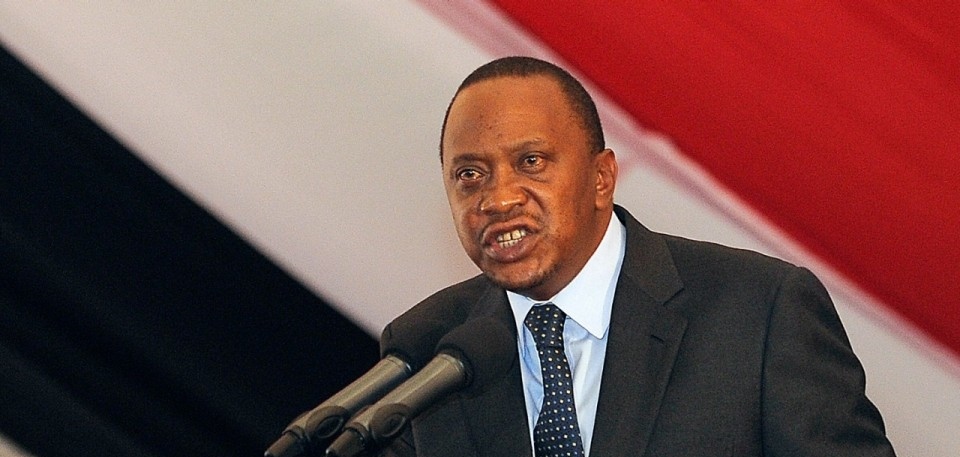Kenyatta sworn in
November 29, 2017 | Expert Insights

Uhuru Kenyatta has been sworn in for a second five-year term as president of Kenya. The day was marred by violence as reports have emerged of the deaths of three people who were participating in an opposition rally.
Background
Kenya is a country in East Africa bordering the Indian Ocean in south east. Its neighbors are Ethiopia, Somalia, South Sudan, Tanzania, and Uganda. Scientists have been able to find evidence of mankind’s earliest ancestors in the region.
The country has often been marred by violence. The Islamist militant Al-Shabab movement, has launched a number of attacked in Kenya. The militant group is particular active in Somalia but carried out the 2013 Westgate shopping mall in Nairobi and the 2015 attack on Garissa University College. Home to 48 million people, the region also grapples with challenges like high unemployment, crime and poverty. It also suffers from frequent droughts that puts the lives of millions of people at risk.
National debt, corruption, inadequate government services and facilities have contributed to stagnation in the economy. A mere 4.4% urbanization rate has a large chunk of Kenyans living in villages and rural settings. The literacy rate is 85%, far greater than other African countries, but the quality of education is substandard. Lack of transparency and fear of covert government violence has heightened insecurity amongst the masses. Consequently, many Kenyans lost faith in the electoral processes of the country.
Uhuru Muigai is a Kenyan politician and the fourth president of the Republic of Kenya. He served as the Member of Parliament for Gatundu South from 2002 to 2013. Currently a member of the Jubilee Party of Kenya, he was previously involved with The National Alliance and before that the Kenya African National Union. He is the son of Jomo Kenyatta, Kenya's first president, and his fourth wife Mama Ngina Kenyatta.
The general elections in Kenya had been held on August 8th, 2017. It was one of the most hotly contested elections in the country’s modern history. The two main contenders were the current President Uhuru Kenyatta and Raila Odinga, who lost to Kenyatta in the previous election. The region used to be a one-party country till 1991. The incumbent was seeking a second and final term of the office.
President Kenyatta had been adjudged the winner after the voting had taken place. However, in September 2017, the Supreme Court of Kenya declared the results of the elections “null and void.” It is likely that this is the first time in Africa where the court has ruled in favor of the opposition regarding election fraud. The re-run of Kenyan elections took place on October 26th, 2017. Odinga withdrew because he said that the elections won’t be fair this time around as well. Kenyatta won the second poll with 98% of the vote on a turnout of only 39%.
Analysis
Uhuru Kenyatta has been sworn in for a second five-year term as president of Kenya. The re-run had been boycotted by the opposition. The President has been sworn in amid has vowed to overcome Kenya's divisions and to restore stability and peace to the region.
However, the day was marred by violence. Reports have emerged that at least three people were killed as police fired rifles and teargas to break up supporters who had come to hear political opposition Raila Odinga speak.He had addressed the crowd briefly before being forced into a car by volleys of teargas from police. “A return to the political backwardness of our past is more than unacceptable. It is intolerable. This divide cannot be bridged by dialogue and compromise,” Odinga’s National Super Alliance said in a statement.
“I … do swear … that I will always truly and diligently serve the people of the Republic of Kenya. The elections are now firmly behind us … I will devote my time and energy to build bridges. To my competitors, and in the spirit of inclusivity, I will endeavour to incorporate some of their ideas. The election was not a contest between a good dream and a bad dream. It was a contest between two competing visions. I will devote my time and energy to build bridges, to unite and bring prosperity to all Kenyans,” Kenyatta said. He once again criticized the Supreme Court’s decision to nullify the previous election results.
Assessment
Our assessment is that politically Kenya remains as fractured as ever. The elections have furthered divided the nation’s citizens. Since only 37% of the population voted in the second elections, Kenyatta is likely to struggle to bring forth unity in the region. He will also have address terrorism that has also been a consistent threat, with Kenyatta forced to address the nation after bloody attacks in 2013 and 2015.








Comments